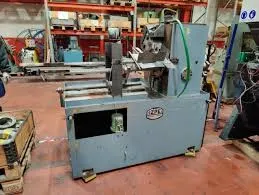
-
 Afrikaans
Afrikaans -
 Albanian
Albanian -
 Amharic
Amharic -
 Arabic
Arabic -
 Armenian
Armenian -
 Azerbaijani
Azerbaijani -
 Basque
Basque -
 Belarusian
Belarusian -
 Bengali
Bengali -
 Bosnian
Bosnian -
 Bulgarian
Bulgarian -
 Catalan
Catalan -
 Cebuano
Cebuano -
 Corsican
Corsican -
 Croatian
Croatian -
 Czech
Czech -
 Danish
Danish -
 Dutch
Dutch -
 English
English -
 Esperanto
Esperanto -
 Estonian
Estonian -
 Finnish
Finnish -
 French
French -
 Frisian
Frisian -
 Galician
Galician -
 Georgian
Georgian -
 German
German -
 Greek
Greek -
 Gujarati
Gujarati -
 Haitian Creole
Haitian Creole -
 hausa
hausa -
 hawaiian
hawaiian -
 Hebrew
Hebrew -
 Hindi
Hindi -
 Miao
Miao -
 Hungarian
Hungarian -
 Icelandic
Icelandic -
 igbo
igbo -
 Indonesian
Indonesian -
 irish
irish -
 Italian
Italian -
 Japanese
Japanese -
 Javanese
Javanese -
 Kannada
Kannada -
 kazakh
kazakh -
 Khmer
Khmer -
 Rwandese
Rwandese -
 Korean
Korean -
 Kurdish
Kurdish -
 Kyrgyz
Kyrgyz -
 Lao
Lao -
 Latin
Latin -
 Latvian
Latvian -
 Lithuanian
Lithuanian -
 Luxembourgish
Luxembourgish -
 Macedonian
Macedonian -
 Malgashi
Malgashi -
 Malay
Malay -
 Malayalam
Malayalam -
 Maltese
Maltese -
 Maori
Maori -
 Marathi
Marathi -
 Mongolian
Mongolian -
 Myanmar
Myanmar -
 Nepali
Nepali -
 Norwegian
Norwegian -
 Norwegian
Norwegian -
 Occitan
Occitan -
 Pashto
Pashto -
 Persian
Persian -
 Polish
Polish -
 Portuguese
Portuguese -
 Punjabi
Punjabi -
 Romanian
Romanian -
 Russian
Russian -
 Samoan
Samoan -
 Scottish Gaelic
Scottish Gaelic -
 Serbian
Serbian -
 Sesotho
Sesotho -
 Shona
Shona -
 Sindhi
Sindhi -
 Sinhala
Sinhala -
 Slovak
Slovak -
 Slovenian
Slovenian -
 Somali
Somali -
 Spanish
Spanish -
 Sundanese
Sundanese -
 Swahili
Swahili -
 Swedish
Swedish -
 Tagalog
Tagalog -
 Tajik
Tajik -
 Tamil
Tamil -
 Tatar
Tatar -
 Telugu
Telugu -
 Thai
Thai -
 Turkish
Turkish -
 Turkmen
Turkmen -
 Ukrainian
Ukrainian -
 Urdu
Urdu -
 Uighur
Uighur -
 Uzbek
Uzbek -
 Vietnamese
Vietnamese -
 Welsh
Welsh -
 Bantu
Bantu -
 Yiddish
Yiddish -
 Yoruba
Yoruba -
 Zulu
Zulu
Types of Thread Rolling Machines for CE Certification and Their Applications
Understanding CE Certification for Thread Rolling Machines
The manufacturing industry often relies on various machines to ensure efficient production processes. Among these, thread rolling machines are crucial for producing high-precision threaded fasteners used in numerous applications. However, to market these machines in the European Economic Area (EEA), manufacturers must obtain CE certification. This article explores the types of thread rolling machines and the significance of CE certification.
Types of Thread Rolling Machines
Thread rolling machines come in several types, each designed for specific applications and thread forms. The most common types include
1. Flat Die Thread Rolling Machines These machines utilize flat dies, which roll the workpiece between them to create threads. This type is particularly effective for producing large quantities of simple threads and is known for its high productivity.
2. Circular Die Thread Rolling Machines Unlike flat die machines, circular die machines employ cylindrical dies that rotate around the workpiece. This configuration is suitable for creating complex and multifaceted threads, providing versatility in production.
3. Multi-Station Thread Rolling Machines These machines integrate multiple rolling stations, allowing for the simultaneous production of various threads. Multi-station machines enhance efficiency and reduce cycle times, making them ideal for high-volume manufacturing.
4. Servo-Controlled Thread Rolling Machines Incorporating advanced technology, servo-controlled machines utilize electric motors for precise control over rolling parameters. This innovation leads to improved thread quality and consistency while minimizing energy consumption.
ce certification types of thread rolling machine

The Importance of CE Certification
CE certification stands for Conformité Européenne, which translates to European Conformity. It indicates that a product meets the essential health, safety, and environmental protection requirements mandated by the European Union (EU) regulations. For thread rolling machines, obtaining CE certification is crucial for several reasons
1. Market Access CE marking is mandatory for machines sold in the EEA. Without it, manufacturers cannot legally market or sell their thread rolling machines in these regions. Certification opens doors to a broader market, enhancing business potential.
2. Safety Assurance The certification process ensures that machines meet stringent safety standards. This not only protects the users operating the machines but also minimizes liabilities for manufacturers in case of accidents or malfunctions.
3. Quality Assurance CE certification reflects a commitment to quality and reliability. Manufacturers who adhere to these standards are viewed as more reputable by customers, which can lead to increased trust and competitiveness in the market.
4. Compliance with EU Legislation With the EU constantly evolving its regulations concerning machinery safety and environmental impact, obtaining CE certification ensures that manufacturers remain compliant with these laws. This can prevent costly fines and legal issues.
Conclusion
In conclusion, thread rolling machines are vital in manufacturing precision components across various industries. As such, understanding the different types of thread rolling machines and the importance of CE certification is essential for manufacturers aiming to succeed in the European market. Investing in the CE certification process not only facilitates market access but also enhances safety, quality, and compliance with EU regulations, ultimately fostering a more competitive edge in the industry.
